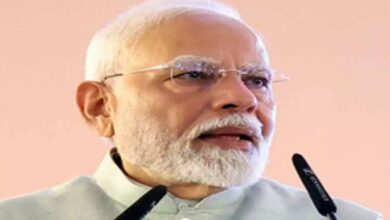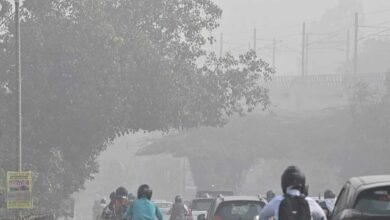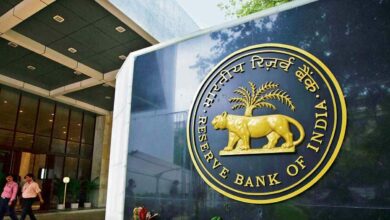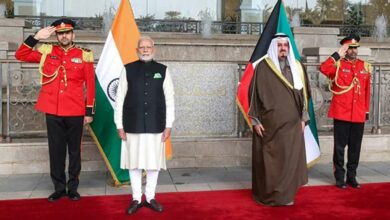Telangana government completes its comprehensive caste survey within a year
Hyderabad: N. Uttam Kumar Reddy, the state’s minister of irrigation and civil supplies, said on Sunday that the Telangana administration has finished its thorough caste census in less than a year and would submit the results to the state Cabinet and Assembly on February 4.

Officials claim that in only 50 days, the state government covered 96.9% of homes in the largest-ever Socio-Economic, Educational, Employment, Political, and Caste (SEEEPC) survey.
The whole procedure took precisely one year, from approving a resolution in the Cabinet to presenting the final report.
The Planning Department, which led the extensive data-gathering effort, officially delivered the survey findings to the Cabinet Sub-Committee, which is chaired by Minister N. Uttam Kumar Reddy.
The minister praised it as a historic endeavor and a groundbreaking move towards social justice, stressing that the results would inform policy choices to improve the lives of Scheduled Tribes, Scheduled Castes, Backward Classes, and other marginalized groups.
Speaking at a news briefing, Uttam Kumar Reddy noted that the Telangana Cabinet had authorized the survey on February 4, 2024, and that the report now marks a significant milestone in governance and planning precisely one year later.
The findings will be given to the Cabinet on February 4 at 10 AM, and the Assembly will have a brief debate that same day. Uttam Kumar Reddy called it a “historic day” for social justice in Telangana.
This fulfilled a key pledge made by Congress leader Rahul Gandhi during the 2023 Telangana Assembly elections, and it was a big step towards data-driven administration.
Under the leadership of Chief Minister Revanth Reddy and Deputy Chief Minister Bhatti Vikramarka, the Congress administration has now established the framework for welfare measures that are grounded in current socioeconomic facts.
Principal Secretary (Planning) Sandeep Kumar Sultania, State Nodal Officer and Hyderabad Collector Anudeep Durishetty, and other high-ranking officials presented the survey reports to Ministers Uttam Kumar Reddy, D. Seethakka, Ponnam Prabhakar, and Damodar Raja Narasimha in a high-level meeting. A thorough PowerPoint presentation outlining the process and results was created by the planning department.
With 94,863 enumerators and 9,628 supervisors spread throughout 94,261 Enumeration Blocks, this extensive survey—the biggest after independence—covered 96.9% of Telangana homes.
Within 36 days, 76,000 data entry workers converted the data to digital format. For seamless implementation, the digital infrastructure was created by the Centre for Good Governance.
On November 9, 2024, Telangana Governor Jishnu Dev Varma participated in the survey, formally launching it and being the first responder.
The poll, which included 354,77554 people, provided important demographic information: There were 164,091,79 BCs (46.25 percent), 618,431 SCs (17.43 percent), and 370,5929 STs (10.45 percent). The overall number of Muslims was 44,57,012 (12.56 percent), including 35,76,588 (10.08 percent) BC Muslims and 8,80,424 (2.48 percent) OC Muslims.
The overall OC population was 15.79 percent, with 44,211,115 (13.31 percent) being other OCs. According to Uttam Kumar Reddy, Telangana’s welfare programs would be reorganized using the results to guarantee a fair allocation of funds.
Uttam Reddy admitted that there were a number of difficulties with the poll, such as disinformation tactics that tried to mislead the audience.
PILs were filed against the survey, creating further legal challenges. However, the High Court decided in favor of the government, allowing the procedure to proceed. 1.68 lakh households were originally reluctant to participate, 1.03 lakh residences were discovered to be locked, and 84,137 dwellings were incorrectly classed as non-residential since their inhabitants were not Telangana residents. These were some of the major operational issues.
To guarantee the highest level of involvement and precision in data gathering, the government carried out several awareness initiatives and field trips.
Uttam Kumar Reddy drew a parallel, pointing out that Telangana finished its caste census in 50 days at a far lesser cost than Bihar, which took six months and cost Rs 500 crore.
He attributed this accomplishment to excellent planning, decentralized execution, and strict top-level oversight. Chief Secretary Santhi Kumari, Deputy Chief Minister Bhatti Vikramarka, and Chief Minister A. Revanth Reddy kept a careful eye on everyday developments. Three of the twelve high-level review sessions were personally chaired by CM Revanth Reddy.
Despite disinformation, people enthusiastically participated in the poll, demonstrating their faith in the government, according to BC Welfare Minister Ponnam Prabhakar, who called it a “golden chapter in Telangana’s history.” Recalling that he had introduced the Assembly resolution for this survey on February 16, 2024, he took delight in its prompt completion. He said that this project would set an example for the whole country and is in line with Rahul Gandhi’s goal of distributing resources fairly.
Health Minister Damodar Raja Narasimha described the survey as a challenging but sincere attempt to guarantee social justice, adding that the government persisted in spite of legal obstacles and that the findings would influence policies that strengthen the most marginalized populations.
The project is historic and helpful to all groups in Telangana, according to Tribal Welfare Minister D. Seethakka, who also suggested that similar studies be carried out across India.
Uttam Kumar Reddy emphasized that Telangana has established the standard for data-driven administration and that this is just the beginning. According to him, this poll is a social justice revolution that will guarantee the most disadvantaged groups get the advantages they are entitled to, not merely a data-gathering exercise.
He said that the results will demonstrate Telangana’s capacity to implement extensive, data-driven policies for the good of the populace by enhancing employment prospects, strengthening social programs, and uplifting marginalized groups.
He also praised Chief Minister Revanth Reddy for his efforts in carrying out this bold project and Rahul Gandhi for serving as an inspiration.
He referred to today as a historic day for Telangana, stated that this survey would serve as a model for the country in attaining social justice, and congratulated the whole team on their hard work and devotion.
“With Telangana setting a new benchmark in large-scale data collection, this survey is expected to be a blueprint for other states across India, ensuring equitable governance and data-driven decision-making,” he said.





